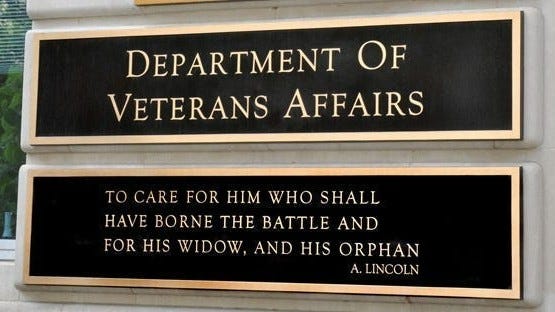
The Department of Veterans Affairs has announced a 10-point human infrastructure plan that it believes will help it keep and hire skilled workers.
”This initiative will help us grow future leaders, and we’d love to replicate it across VA, because we want you to grow your careers right here at home,” VA Secretary Denis McDonough said Wednesday at the Ralph H. Johnso VA Medical Center in Charleston, South Carolina.
The 10 steps are:
- Work with Congress to invest in wages by raising the federal worker minimum wage to $15 an hour and urging Congress to pass the RAISE Act to raise them and/or empower us to pay employees what they’re worth.
- Maximize bonuses and retention incentives by waiving limits on bonuses for work done during the pandemic and increasing retention incentives.
- Increase opportunities to advance at VA by growing future leaders and opening the door to opportunities for higher general schedule grades and promotions.
- Expedite the hiring process by better leveraging hiring authorities and redesigning the national onboarding process.
- Offer greater flexibility in where employees work by maximizing opportunities to increase availability to work outside your traditional workspace whenever and wherever possible.
- Help cover the cost of childcare by increasing the income cap from $89,000 to $149,000 per year to receive a childcare subsidy through VA.
- Invest in measures to improve well-being by listening to employees and developing recommendations for how to address burnout, promote work-life balance and more.
- Invest in education by funding scholarship programs for employees and working with the President on loan forgiveness.
- Embed inclusion, diversity, equity and access (I-DEA) across VA by integrating I-DEA principles into hiring, position management and talent management, and ensuring VA is a welcoming workplace for all employees.
- Protect employees from COVID-19 by pursuing the latest workplace safety measures, offering all employees N95 masks for voluntary use and enforcing the vaccine requirement for all health care personnel.
McDonough added that COVID-19 has negatively impacted the VA’s workforce and that the plan will help address the turnover rate for nurses, which is currently the highest its been in the past 15 years.
“You’ve had to cover for thousands of colleagues who were sick and unable to work, meaning even longer hours and later nights,” he said. “And, due to unprecedented demand for frontline workers, salaries have grown to historic highs in the private sector, but they haven’t moved at VA.”
McDonough also noted that VA has been authorized to pay retention incentives of up to half of an employee’s base salary. That number is up by 25% from past amounts.
“Neither nurses nor anyone else should have to sacrifice pay to serve vets, so these steps are crucial for keeping our people right here where you belong,” he said.
McDonough also explained that the National Cemetery Administration is currently reclassifying its occupational series for cemetery representatives, a move that will to promotions and raises.
A task force known as VHAREBOOT has been established at the Veterans Health Administration with a mission of promoting work-life balance, improving work conditions, reducing burnout, and increasing scheduling flexibility, he said.

According to McDonough, managers have been told to use “all available authorities to establish a new normal at VA, one that maximizes your flexibility to work outside your traditional workspace whenever and wherever possible.”
McDonough’s remarks came on the one-year anniversary of his being sworn in as VA secretary.
Reach Julia LeDoux at Julia@connectingvets.com.



